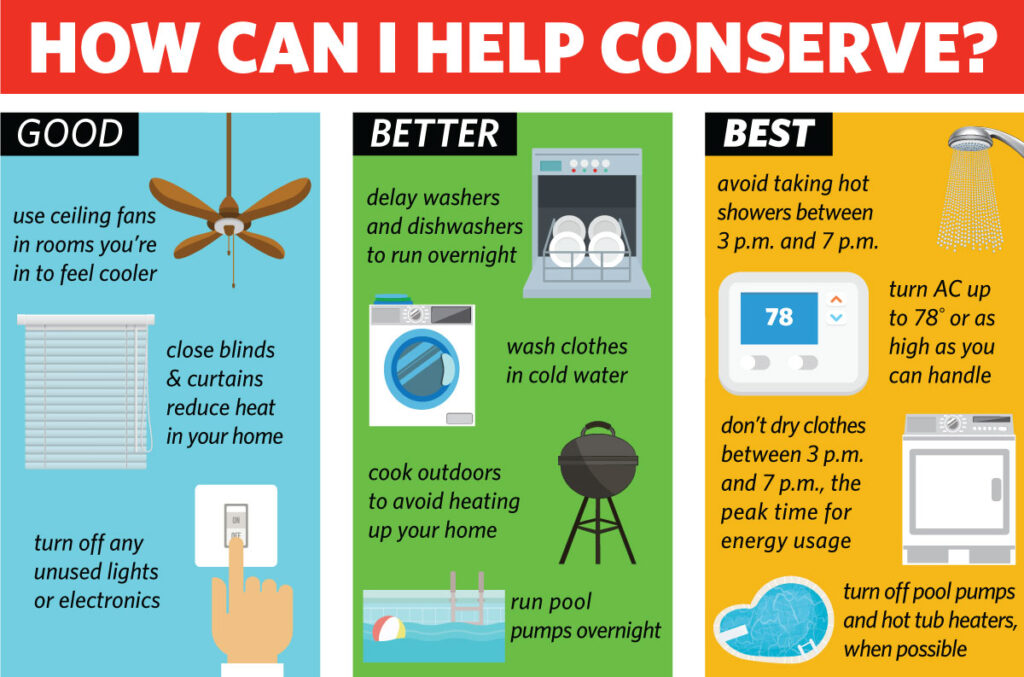
Welcome to our latest blog post on Top Energy Saving Ways for Your Home! Are you looking to reduce your energy bills while also helping the environment? Look no further because we have compiled a list of tips and tricks that will not only make your home more energy-efficient but also save you money in the long run. With rising energy costs, it’s essential to find ways to conserve energy without sacrificing comfort or convenience. So, let’s dive into some easy and effective ways to become an energy saver at home!
Ways To Conserve Energy In The Home

There are many ways to conserve energy in your home, and some of them require little to no effort. One easy way is to turn off lights and electronics when they’re not in use or install motion sensors that will automatically turn off lights when a room is empty. Another simple trick is to adjust your thermostat by a degree or two, which can save you up to 10% on heating and cooling costs.
You can also reduce your energy consumption by upgrading to more efficient appliances, such as refrigerators, dishwashers, and washing machines that have earned the ENERGY STAR label. These appliances use less energy while still delivering high-quality performance.
Another effective way of conserving energy is by sealing air leaks around doors and windows using weather stripping or caulking. This prevents the conditioned air from escaping out of the house while keeping unwanted drafts outside.
Consider investing in renewable energy sources like solar panels or wind turbines if possible. Not only do they help cut down on electricity bills but also reduce carbon emissions into the atmosphere.
By implementing these tips into your home routine, you’ll be able to become an Energy saver without sacrificing comfort!
Why Conserving Energy Is Important

Conserving energy is an important aspect of our daily lives. Not only does it help us to save money on utility bills, but it also helps to reduce the impact that we have on the environment. By using less energy, we can decrease our carbon footprint and contribute towards a more sustainable future.
When we conserve energy in our homes, we are doing our part to protect the planet for generations to come. The use of fossil fuels not only releases harmful greenhouse gases into the atmosphere but also contributes towards climate change.
By conserving energy, we can slow down this process and ensure that there are enough resources for future generations. It’s never too late to start making changes in your home. Simply turning off lights when they’re not being used or switching to LED bulbs can make a significant difference in reducing your overall energy consumption.
In addition, conserving energy has economic benefits as well. When you use less electricity or gas, you end up paying less on your monthly bills which translates into savings that can be invested elsewhere.
Conserving energy is crucial for both environmental and financial reasons. Every small effort counts towards creating a better world where sustainability is at its core value.
How To Save Money By Conserving Energy

One of the main benefits of conserving energy in your home is that it can lead to significant cost savings on your utility bills. By implementing energy-saving measures, you can reduce your power consumption and ultimately lower your electricity bill.
One way to save money through energy conservation is by using more efficient appliances. Look for appliances with the Energy Star label, which indicates that they meet strict efficiency guidelines set by the U.
S. Environmental Protection Agency. These appliances use less energy than their non-certified counterparts and can help you save hundreds of dollars over time.
Another way to save money is by adjusting your thermostat settings. During winter months, set your thermostat a few degrees lower when you’re away from home or asleep at night. In summer months, adjust it a few degrees higher during those times instead. This simple change can lead to significant savings on heating and cooling costs.
You should also consider installing a programmable thermostat if you don’t have one already. This device allows you to pre-set temperature levels throughout the day based on when you’re typically at home or away, maximizing efficiency while minimizing waste.
Make sure to turn off lights and unplug electronics when not in use as even small amounts of standby power add up over time leading an increase in electricity bills each month!
The Most Efficient Ways To Conserve Energy In The Home
The most efficient ways to conserve energy in the home are by making simple changes in your daily routine and upgrading your appliances. One of the easiest things you can do is switch off lights and unplug electronics when they’re not in use.
Another way to save energy is by upgrading your light bulbs to LEDs. These bulbs use less electricity than traditional incandescent bulbs and have a longer lifespan, making them more cost-effective over time.
You can also install a programmable thermostat that automatically adjusts the temperature based on your schedule. This helps reduce unnecessary heating or cooling when no one is at home, which saves money on utility bills.
Additionally, sealing air leaks around windows and doors with weather-stripping can help regulate indoor temperatures without relying as much on heating or cooling systems.
Investing in Energy Star certified appliances such as refrigerators, washing machines, and dishwashers can significantly reduce energy consumption while still providing excellent performance. These appliances meet strict energy efficiency guidelines set by the Environmental Protection Agency (EPA).
By implementing these simple yet effective strategies for conserving energy at home, you can lower your environmental impact while saving money on monthly bills.
Conclusion
Adopting energy-saving practices in your home is a wise decision that will benefit both you and the environment. By implementing the top energy-saving ways we have outlined in this article, you can reduce your carbon footprint while saving money on utility bills.
It’s important to note that making small changes in our daily habits can significantly impact our energy consumption levels, which ultimately contributes to a healthier planet. So, whether it’s switching to LED light bulbs or using appliances only when necessary, every little bit counts towards conserving energy.
As individuals, we all have the power and responsibility to make conscious choices about how much energy we consume in our homes. Let us take action today and start living an environmentally friendly lifestyle by becoming an Energy Saver!

